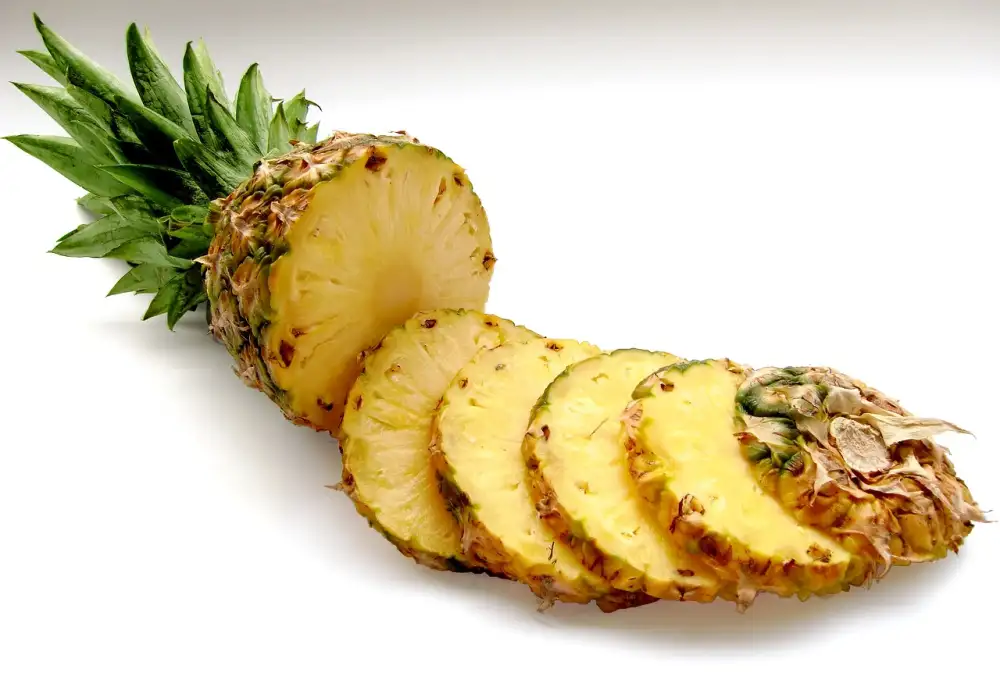Unraveling the Mystery: Why Does Pineapple Cause Mouth Discomfort? Explained by Health Experts

Pineapple, with its sweet and tangy flavor, is a popular tropical fruit enjoyed by many. However, for some individuals, consuming pineapple can lead to an uncomfortable sensation in the mouth. This mysterious discomfort has left many wondering why this delicious fruit can cause such irritation. In this article, we will delve into the science behind pineapple's mouth irritation, exploring the enzymes present in pineapple and their effects on oral tissues. By understanding the root cause of this discomfort, we can learn how to manage it and fully embrace the deliciousness of pineapple while minimizing any potential side effects.
The science behind pineapple's mouth irritation
Pineapple's mouth irritation can be attributed to the presence of certain enzymes, specifically bromelain. When we consume pineapple, these enzymes come into contact with our oral tissues, causing a tingling or stinging sensation. The science behind this lies in the fact that bromelain breaks down proteins, including those found in our mouths. This enzymatic action can lead to mild inflammation and discomfort for some individuals. Understanding the science behind pineapple's mouth irritation is crucial in managing and minimizing any potential discomfort it may cause.
Enzymes in pineapple: Bromelain and its effects on the mouth
Enzymes play a crucial role in the pineapple's mouth irritation. One enzyme, in particular, called bromelain, is responsible for much of the discomfort experienced when consuming pineapple. Bromelain is a proteolytic enzyme that breaks down proteins, including those found in our mouths. When we eat pineapple, bromelain comes into contact with the tissues in our mouths, causing them to become tender and sensitive. This can result in a tingling or burning sensation that some people find uncomfortable. Understanding the role of bromelain can help us better comprehend why pineapple causes mouth discomfort and explore ways to minimize its effects.
Pineapple's acidity: How it affects oral tissues
Pineapple's acidity plays a significant role in its effect on oral tissues. The fruit contains citric acid, which can cause irritation and discomfort when it comes into contact with the sensitive tissues of the mouth. The high acidity level can lead to a burning or stinging sensation, especially if consumed in large quantities or when the pineapple is particularly ripe. Additionally, the acidic nature of pineapple can also contribute to the erosion of tooth enamel over time, leading to dental sensitivity and potential tooth decay. It is important to be mindful of this acidity and take necessary precautions to protect oral health when consuming pineapple.
Sensitivity and allergies: Potential reasons for mouth discomfort
Sensitivity and allergies are potential reasons for mouth discomfort when consuming pineapple. Some individuals may have a sensitivity to bromelain, the enzyme found in pineapple, which can cause irritation and inflammation in the mouth. Allergic reactions to pineapple can also occur, leading to symptoms such as itching, swelling, and difficulty breathing. It is important for those with known sensitivities or allergies to avoid consuming pineapple or seek medical advice before doing so.
Tips to minimize pineapple-induced mouth irritation
1. Pair pineapple with dairy products: Consuming pineapple along with dairy products like yogurt or milk can help neutralize the acidity and reduce mouth discomfort.
2. Cook or grill pineapple: Heat breaks down the enzymes in pineapple, making it less likely to cause irritation. Grilling or cooking pineapple can help alleviate the mouth discomfort.
3. Rinse your mouth after eating pineapple: After enjoying a delicious serving of pineapple, rinse your mouth with water to remove any lingering enzymes or acids that may be causing irritation.
4. Freeze pineapple before consuming: Freezing pineapple can also help reduce the activity of bromelain, making it less likely to cause oral discomfort.
5. Choose ripe pineapples: Ripe pineapples have lower levels of bromelain compared to unripe ones. Opt for fully ripe pineapples to minimize the chances of experiencing mouth irritation.
By following these tips, you can enjoy the sweet and tangy flavors of pineapple while minimizing any potential discomfort it may cause in your mouth.
While pineapple may cause mouth discomfort for some individuals, it doesn't mean we have to completely avoid this delicious fruit. By understanding the science behind its effects and taking a few precautions, we can still enjoy pineapple without experiencing too much irritation.
Firstly, choosing ripe pineapples can help reduce the levels of bromelain enzyme, which is responsible for most of the mouth irritation. Additionally, cutting off the core and soaking the pineapple in saltwater or lemon juice for a few minutes before consuming can further decrease bromelain levels.
Secondly, eating pineapple alongside other foods can help dilute its acidity and minimize its effects on oral tissues. Pairing it with dairy products like yogurt or cheese can be particularly effective in reducing discomfort.
Lastly, if you have known sensitivities or allergies to pineapple, it's best to avoid it altogether or consult with a healthcare professional for guidance.
By following these tips, we can continue to embrace the tropical goodness of pineapple while minimizing any potential mouth discomfort. So go ahead and indulge in this sweet and tangy fruit, knowing that you've taken steps to make your experience more enjoyable.
Published: 16. 01. 2024
Category: Health



